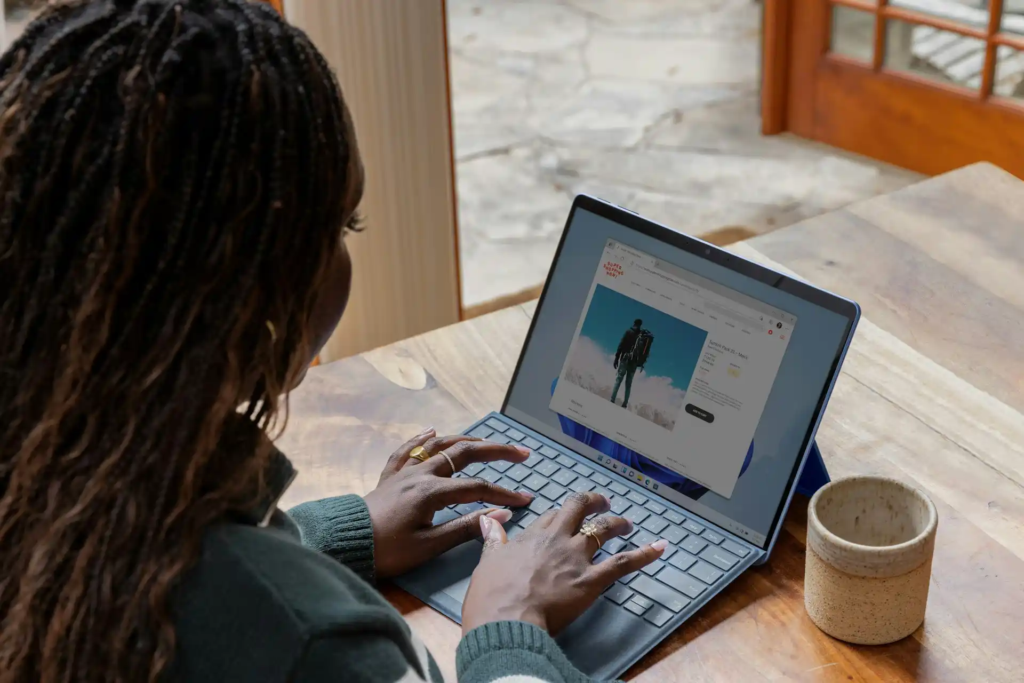Blogging has become one of the easiest ways to share ideas, build a personal brand, or grow a business online. Whether you’re writing about food, fashion, parenting, or marketing, there’s room for every voice. In fact, over 600 million blogs are currently active worldwide, demonstrating the broad appeal of blogging world. For some, blogging is a creative outlet. For others, it’s a way to make money, shift careers, or work from anywhere.
But let’s be real—blogging isn’t always easy. While the benefits can be exciting, there are also real challenges behind the scenes during the blogging journey. About 20% of bloggers report seeing strong results from their efforts, showing that while it’s possible to succeed, it requires a lot of time and strategy. Additionally, there are a few downsides to blogging that should be recognized. If you’re thinking about starting a blog, it’s worth looking at both sides.
So, what’s pulling you toward blogging? Is it the freedom, the income potential, or something else? Let’s break it all down—the good, the tough, and what it really takes to keep going.
Definition of Blogging
Blogging is a form of online publishing that involves creating and sharing content, such as blog posts, articles, and videos, on a website or platform. It can be used for personal or professional purposes and can be an effective way to establish oneself as an expert in a particular field or niche. Blogging can also be a creative outlet, allowing individuals to express themselves and share their passions with others.
A good blog post can range from a personal diary entry to a detailed how-to guide, depending on the blogger’s goals and audience. The beauty of blogging lies in its flexibility; you can write about what you love, share your knowledge, and connect with like-minded people. Over time, your blog can become a valuable resource for readers and a testament to your expertise and creativity.
The Compelling Advantages of Blogging

1. Unleashing Your Creative Voice and Passion
Blogging gives you the freedom to express your thoughts and creativity without restrictions. Whether you’re sharing personal experiences or diving into niche topics, your blog is your platform. It’s like having a blank canvas where you can shape your content as you see fit. You get to choose what to write about, how you write it, and how your blog grows. This creative freedom can be incredibly fulfilling, especially if you’re passionate about something and want to connect with others who share similar interests. The amazing feeling of connecting with your audience and seeing them engage with your content is truly rewarding.
2. Building a Flexible and Location-Independent Lifestyle
One of the biggest perks of blogging is the flexibility it offers. You can work from anywhere with an internet connection, whether it’s your home, a coffee shop, or while traveling the world. Many bloggers take advantage of this location-independent lifestyle to create their own schedules, allowing them to balance work and personal life however they choose. Want to take a day off or travel for a while? Blogging allows you to do that. With no office or commute to worry about, you have the power to set your own pace and make your blog fit your life rather than the other way around.
This flexibility is particularly attractive to those who value freedom and want to avoid the traditional 9-to-5 grind. It’s one of the many benefits blogging offers to those looking for a new business opportunity.
3. The Potential for Income Generation and Financial Freedom
While it’s not a get-rich-quick venture, blogging has the potential for making money online and to generate a steady income stream. There are several ways to monetize your blog:
Affiliate Marketing: Promoting products or services and earning commissions when readers make a purchase.
Advertising: Platforms like Google Adsense allow you to place ads on your site and earn money based on impressions or clicks.
Sponsored Content: Company pays you to write posts that feature their products or services.
Selling Digital Products: From eBooks and online courses to templates or printables, digital products are a popular way for bloggers to make money.
Selling Physical Products: Some bloggers sell physical items, like branded merchandise or handmade goods, through their blogs.
Consulting and Freelance Services: If you have expertise in a particular area, you can offer consulting services or freelance work.
Blog Flipping: Another option is buying and improving underperforming blogs, then selling them for a profit.
Additionally, blogging offers the opportunity to earn passive income, making it an attractive option for those seeking a balanced lifestyle. Career opportunities in blogging are endless, but it does take time to yield financial results.
Remember, though, that blogging takes time to yield financial results. Consistency, patience, and a strategic approach are essential for long-term success. If you want to learn more detail about how to monetize your blog, keep exploring the possibilities that fit your niche.
4. Connecting with a Community and Expanding Your Online Networks
Blogging opens up numerous opportunities to connect with others, whether it’s with readers, fellow bloggers, or industry professionals. By sharing your content, you’re likely to attract a community of like-minded people who share similar passions and interests. This community can become a valuable resource for support, advice, and collaboration.
With approximately 409 million blog readers monthly, the potential for community engagement and reach is immense, making blogs a valuable medium for connecting with a wide audience. Additionally, video platforms like YouTube can be powerful tools for expanding your network, offering a more dynamic way to engage with your audience.
Networking with other bloggers is another major perk. You can exchange ideas, collaborate on projects, or simply build friendships. These connections can lead to exciting opportunities—whether it’s guest posts, joint ventures, or even career shifts. Bloggers often work with brands, companies, and influencers, expanding their professional reach. The friendships and networking potential can be a game-changer, especially for those looking to grow their personal or business brand. As new users discover your content, your reach continues to grow.
5. Enhancing Your Skills and Fostering Personal Growth
Blogging is an ongoing learning experience that pushes you to develop new skills. If you write regularly, you’ll naturally improve your writing style and become a better communicator. You’ll also learn the basics of SEO (search engine optimization), which will help your content get discovered by a larger audience. Additionally, managing your own website provides hands-on experience with technical skills, like website management, design, and maintenance.
Along the way, you’ll have the opportunity to step outside your comfort zone, whether it’s learning about new topics, mastering new software, or taking on new challenges. Blogging encourages growth not only as a writer but as a person. It challenges you to explore new ideas and acquire a variety of new skills. The learning never stops, and the skills you gain can benefit you in many areas of life, from your career to personal development.
6. Establishing Authority, Building Trust, and Expanding Your Reach
One of the most significant long-term benefits of blogging is the ability to establish yourself as an authority in your niche. By consistently providing valuable, well-researched, and insightful content, you can position yourself as a thought leader in your field. As your blog grows, you build credibility and trust with your audience, which is crucial for fostering long-term relationships.
Blogging also gives you a platform to increase your online visibility. Every post you publish is an opportunity to improve your SEO and rank higher on search engines, leading to more organic traffic. By focusing on relevant content tailored to your specific audience, you not only drive traffic to your website but also increase the chances of converting visitors into potential clients or customers. The more valuable your content is, the more likely it is that people will return to your blog and share it with others.
In time, your blog can serve as a portfolio of your work, showcasing your expertise to potential clients, employers, or collaborators. Whether you’re a freelancer looking for clients, a business owner trying to increase brand awareness, or simply someone looking to grow a personal brand, blogging is an excellent way to expand your reach and demonstrate your expertise. This is a few reasons why many people use blogging to boost their online presence and build lasting relationships with their audience.
Navigating the Challenges and Cons of Blogging

1. The Significant Time Investment Required
While blogging can be a rewarding endeavor, most bloggers find it’s not without its time demands. Successful bloggers know that writing is just one part of the equation. You’ll need to spend time planning your content, researching topics, promoting your posts, and engaging with your audience. Additionally, maintaining your website, troubleshooting technical issues, and staying up-to-date with the latest trends can easily add hours to your weekly routine.
The time commitment can become overwhelming, especially when balancing other responsibilities like work or personal life. It’s important to set realistic goals and create a schedule that works for you, whether that’s writing one post a week or several. While some bloggers may only post occasionally, others may publish several times a week. However, consistency is key to building an engaged audience.
2. The Uncertainty and Lack of Guaranteed Income
When you start blogging, income isn’t guaranteed—at least not immediately. Many new bloggers face a long road before they start seeing financial returns. Even with great content and a solid marketing strategy, earning a significant income takes time. Traffic doesn’t usually surge overnight, and monetization strategies like affiliate marketing or ads take time to build up. It can be discouraging when you don’t see immediate financial results from all the hard work you’ve put in.
However, increased traffic and growth can lead to more money over time.
Diversifying income streams is a common strategy for bloggers, but this can also add to the workload. It’s crucial to have patience, persistence, and a willingness to experiment with different methods to see what works best for your blog.
3. The Highly Competitive Blogging Landscape
Blogging has become incredibly popular, and as a result, it’s also highly competitive. Millions of blogs are out there, covering virtually every topic imaginable. Standing out in such a crowded space can feel like a daunting task, especially when you’re just starting. You’ll need to develop a unique voice, choose a niche that isn’t oversaturated, and create content that provides real value to your readers.
It’s not just about writing well; you also need to make sure your blog is discoverable by search engines, which involves mastering SEO and conducting thorough keyword research. This competitive landscape requires a combination of creativity, hard work, and a solid strategy to differentiate yourself from the crowd. Many successful bloggers find that developing a personal brand and honing a specific niche can make all the difference in gaining traction.
4. The Technical Hurdles and Ongoing Maintenance
Running a blog means dealing with the technical side of things too. From hosting and domain management to website design and security, these tasks can be overwhelming, especially if you’re not familiar with the tech side of blogging. Even if you use user-friendly platforms like WordPress, there are still regular updates, plugin issues, and website backups to manage.
Establishing a new site can be particularly challenging, but there are tools and resources available that simplify the process, such as themes and templates designed for beginners.
For beginners, this can feel like a steep learning curve. Technical problems, such as slow website speeds or security issues, can also frustrate bloggers and impact user experience. While some bloggers hire professionals to manage these aspects, this adds to the overall costs of running a blog. If you choose to handle everything yourself, it can quickly become a time-consuming responsibility that detracts from the creative side of blogging.
5. The Need for Consistent and Quality Content Creation
Blogging requires consistent and high-quality content creation. It’s easy to run out of ideas, especially when trying to keep a regular posting schedule. Coming up with fresh, engaging topics and maintaining a high standard of writing can be challenging. You need to ensure that your content is both informative and interesting to your audience. The pressure to stay creative and consistently produce can lead to many writers to block or burnout.
Regularly updating your blog with valuable content is crucial for retaining and attracting new readers. However, it takes time to research topics, write posts, and polish your work before it’s ready for publication. Some bloggers find it helpful to plan content in advance, while others struggle with a lack of inspiration. Regardless, maintaining quality content with helpful tips while avoiding exhaustion is a major challenge for many bloggers.
6. Dealing with Criticism, Negativity, and Potential Burnout
With the public nature of blogging comes the risk of facing criticism and negativity. Not every reader will agree with your opinions, and some may even leave harsh comments or feedback. Dealing with trolls or online bullies can be emotionally taxing, especially when you’re putting so much effort into creating content. Negative comments can sometimes feel discouraging, and if you let them affect you too much, they could lead to burnout.
Burnout is another concern, especially if you’re blogging regularly while juggling other responsibilities. The constant pressure to create fresh content, engage with your audience, and manage the technical side of your blog can eventually take its toll. Taking breaks and setting boundaries is important to avoid feeling overwhelmed. Finding a balance between blogging and self-care can help prevent burnout and keep the creative energy flowing.
Getting Started with Blogging

Getting started with blogging can seem daunting, but it can be a relatively easy task with the right guidance. Here are a few steps to help you get started:
First Blog Post
Your first blog post is an important one, as it sets the tone for your blog and introduces your readers to your writing style and content. It’s essential to create quality content that resonates with your target audience and encourages them to keep reading. You can start by brainstorming ideas, researching your topic, and outlining your post. Remember to keep your content engaging, informative, and concise.
Think about what you want to achieve with your first blog post. Are you introducing yourself, sharing a personal story, or providing valuable information? Whatever your focus, make sure it reflects your blog’s overall theme and goals. A well-crafted first blog post can leave a lasting impression and set the stage for future content.
Choosing a Platform
There are many free blogging platforms available, including WordPress, Blogger, and Wix. Each platform has its pros and cons, so it’s essential to choose the one that best suits your needs. You might also explore other platforms depending on your goals, such as starting a YouTube channel alongside your blog to increase your reach. Consider factors such as ease of use, customization options, and integrations with social media platforms. You can also opt for a self-hosted platform, which gives you more control over your blog and its content. Some popular self-hosted platforms include WordPress.org and Ghost, which are often considered the best platforms for serious bloggers. For those looking for a free option, Medium is one of the best free blogging platforms, offering an easy-to-use interface and a built-in audience.
When choosing a platform, consider the following factors:
Ease of use: How easy is it to create and publish content?
Customization options: Can you customize the design and layout of your blog?
Integrations: Does the platform integrate with social media platforms and other tools?
Cost: Are there any costs associated with using the platform?
Support: What kind of support does the platform offer?
By considering these factors and exploring different platforms, you can choose the one that meets your needs and helps you create a successful blog. Remember, the key to a successful blog is creating high-quality content that resonates with your target audience and promoting your blog through social media, other platforms, and channels like YouTube. With the right platform and a bit of effort, you can establish a strong online presence and achieve your blogging goals.
Making the Decision: Is Blogging Right for You?
After diving into the advantages and challenges of blogging, it’s time to step back and evaluate whether this path is right for you. The decision to start a blog depends on your personal goals, interests, and the amount of time you’re willing to commit. It isn’t as straightforward as simply weighing the pros and cons of blogging; serious consideration of these factors is essential.
What Motivates You?
Think about why you want to start a blog in the first place. Are you looking to express your creative ideas, share your passions, or build a business model? If you’re motivated by the idea of connecting with others, showcasing your expertise, and you enjoy writing, blogging could be a great fit. However, if you’re only thinking about quick income, you might need to reconsider. Blogging is often more of a long-term commitment, requiring patience and persistence before you see financial rewards.
In the United States alone, there are over 31.7 million bloggers, reflecting a growing interest in blogging as both a hobby and a profession. This figure suggests that many individuals find value and fulfillment in this endeavor.
Your Time and Effort
Consider how much time you can realistically dedicate to blogging. As we discussed, blogging demands consistent effort, from writing online content to managing your website. Are you prepared to put in the time, even when progress feels slow? If you’re already juggling other commitments, this can be a tough balancing act. It’s important to be realistic about the time you can give to the blog without sacrificing other areas of your life.
Comfort with Uncertainty
One of the biggest hurdles for many bloggers is the uncertainty of income and success. In the beginning, it’s hard to predict how your blog will perform. You may face challenges like low traffic or struggling to find your niche. Are you comfortable with this uncertainty and the possibility of setbacks? If so, you’re more likely to persevere and push through the rough patches.
Do You Have the Necessary Skills?
Blogging requires various skills, including writing, digital marketing, and technical know-how. While you can learn these skills over time, it helps to have a basic understanding before diving in. Do you have the time and interest to develop these skills, or are you willing to hire help when needed? A willingness to learn and adapt is essential for any blogger.
Conclusion
Blogging has a lot to offer—freedom, growth, connection, and sometimes, income. But it also asks for your time, energy, and patience. It’s not a quick win, and it won’t suit everyone.
If you’re drawn to the idea, take a moment to think about what you really want from it. Whether it’s personal expression or building something bigger, being honest with yourself is the first step.
Blogging isn’t just about writing—it’s about showing up, learning as you go, and staying consistent. And if you’re ready for that? You might just find it’s worth every bit of the effort.
Thinking of starting your own blog? At Sass and SEO, we offer SEO courses designed to help you grow your online presence. Whether you’re blogging for fun or business, our expert-led agency can guide you through the process and help you get the most out of your content. Reach out today to learn more!
Frequently Asked Questions (FAQs)
1. What is blogging?
Blogging is the act of writing and sharing content on a website. It can be about anything you’re passionate about, from personal experiences to business insights.
2. How do I make money from blogging?
You can earn through affiliate marketing, ads, sponsored posts, or selling digital products like eBooks. It takes time, but consistent effort can lead to income.
3. How long does it take to start seeing results from blogging?
It varies, but typically, it takes several months to start seeing noticeable traffic and income. Building an audience and ranking on search engines takes time.
4. Do I need technical skills to start writing a blog?
While some basic tech knowledge is helpful, you don’t need to be a tech expert. Many blogging platforms make it easy for beginners to get started.
5. Can blogging help with small business growth?
Yes, blogging can boost your online visibility, establish credibility, and drive more traffic to your website. It’s a great way to engage potential customers and build trust.





